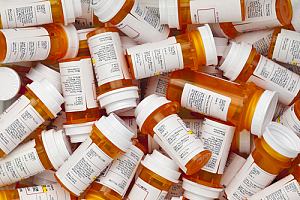 When someone owns or otherwise possesses a controlled substance that is illegal to have without justification (like a prescription), they may be subject to legal consequences for possession of a controlled substance.
When someone owns or otherwise possesses a controlled substance that is illegal to have without justification (like a prescription), they may be subject to legal consequences for possession of a controlled substance.
Even if they do not have any intention to use illegal drugs themselves, if a person is shown to be creating, manufacturing, or moving drugs with the intent of giving or selling them to others, they can be charged with distribution.
Controlled Substance Classifications
The penalties for possession of a controlled substance will vary depending on which schedule the drugs in question are categorized as. The scheduling system ranks drugs according to their acceptable medical use and their abuse or dependence potential.
| Possession | Class | Penalties (Code Of Virginia § 18.2-248) |
|---|---|---|
| Schedule I/II | Class 5 Felony |
1-10 years of imprisonment or confinement in jail for up to 12 months & a $2,500 fine (either or both) |
| Schedule III | Class 1 Misdemeanor | Confinement in jail for up to 12 months & a $2,500 fine (either or both) |
| Schedule IV | Class 2 Misdemeanor | Confinement in jail for up to 6 months & a $1,000 fine (either or both) |
| Schedule V | Class 3 Misdemeanor | Up to a $500 fine |
| Schedule VI | Class 4 Misdemeanor | Up to a $250 fine |
Schedule 1 Controlled Substances
Drugs in the schedule 1 class are the most potent in terms of abuse potential. They have no independent medical use and include heroin, LSD, ecstasy, and methaqualone. Because these drugs are not used for medical treatment, there is no legal justification for possessing them, and they will carry the most severe penalties.
Schedule 2 Controlled Substances
While schedule 2 drugs do see use as medicines to treat conditions like pain and inflammation, they have a high risk of dependency and can cause severe psychological or physical changes. Drugs in this category include some well-known substances like Dilaudid, OxyContin, fentanyl, Adderall and Ritalin.
Schedule 3 Controlled Substances
Drugs belonging to the schedule 3 categories still have the potential for dependence and abuse, but they are less commonly abused than schedule 1 and schedule 2 substances. They are frequently prescribed to many people and are more widely accessible. Schedule 3 substances include codeine, ketamine, anabolic steroids and even testosterone.
Schedule 4 Controlled Substances
Schedule 4 drugs have a low risk of dependence and abuse, but the risk is still present. These frequently prescribed medications include Tramadol, Ambien, Ativan, Valium and Xanax, among others.
Schedule 5 Controlled Substances
 Drugs in the schedule 5 categories have a low risk of abuse and are less commonly abused than schedule 4 substances.
Drugs in the schedule 5 categories have a low risk of abuse and are less commonly abused than schedule 4 substances.
They are generally used for anti-diarrheal or analgesic purposes and fit into controlled substance rubrics because they contain limited quantities of some narcotics. Robitussin, Motofen and Lyrica are included in this category.
Schedule 6 Controlled Substances
Drugs with a particularly low risk of dependency are classified as schedule 6. The primary substance in this category is marijuana.
Speak To An Experienced Criminal Defense Attorney
If you have been or suspect that you will be investigated for possession or distribution of a controlled substance, it is important to work with a skilled criminal defense attorney who will fight aggressively on your behalf. The penalties for possession and distribution vary depending on the drug’s place in the scheduling system, but even charges for schedule 1 or schedule 2 substances can be mitigated with the help of an experienced Fairfax criminal defense attorney.
Reach out to The Law Offices of Kermit A. Monge for assistance in reducing or even dismissing the charges against you. Your association with controlled substances does not have to define you. Call today by phone at 703.273.5500 or request a consultation online.
